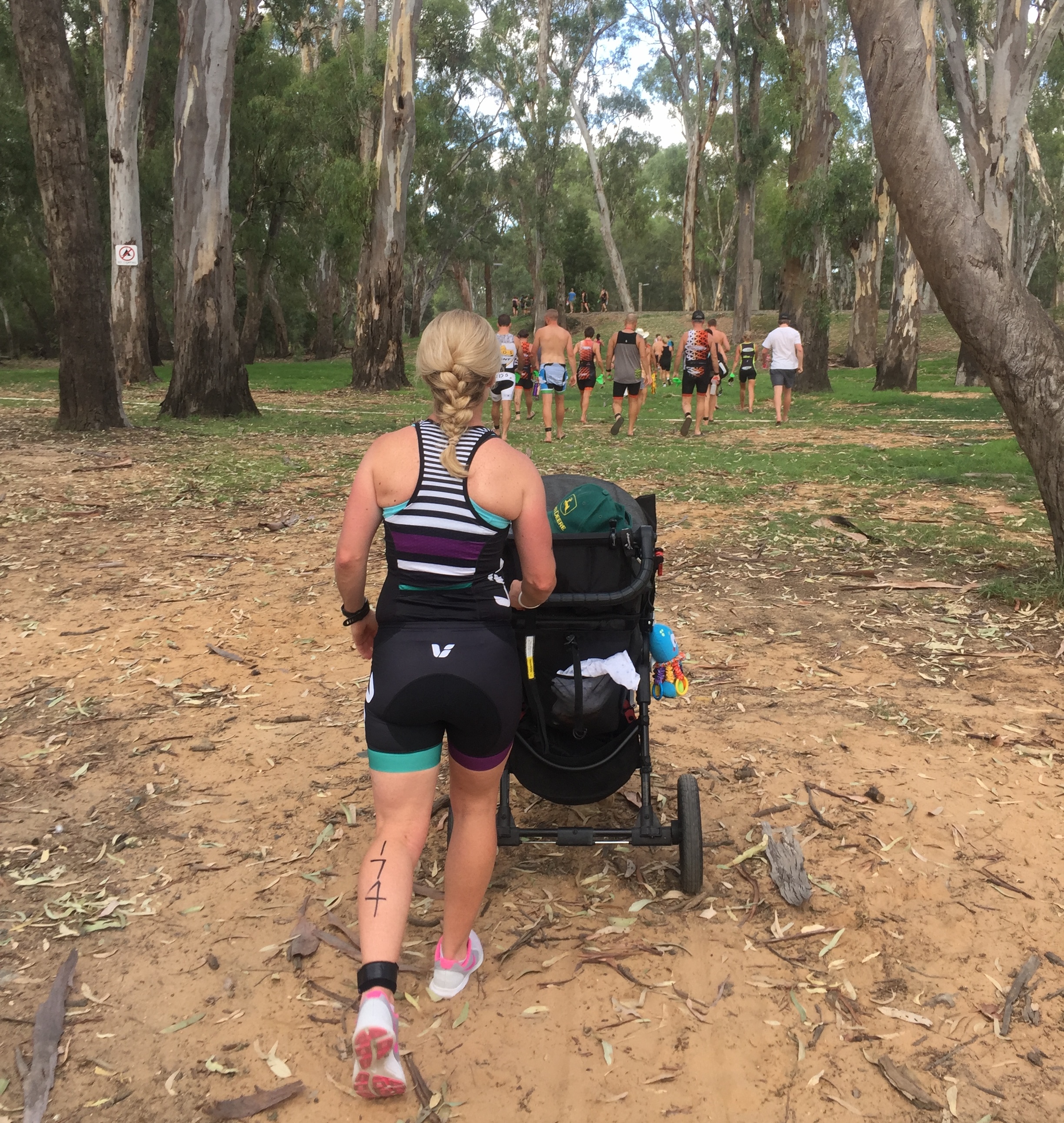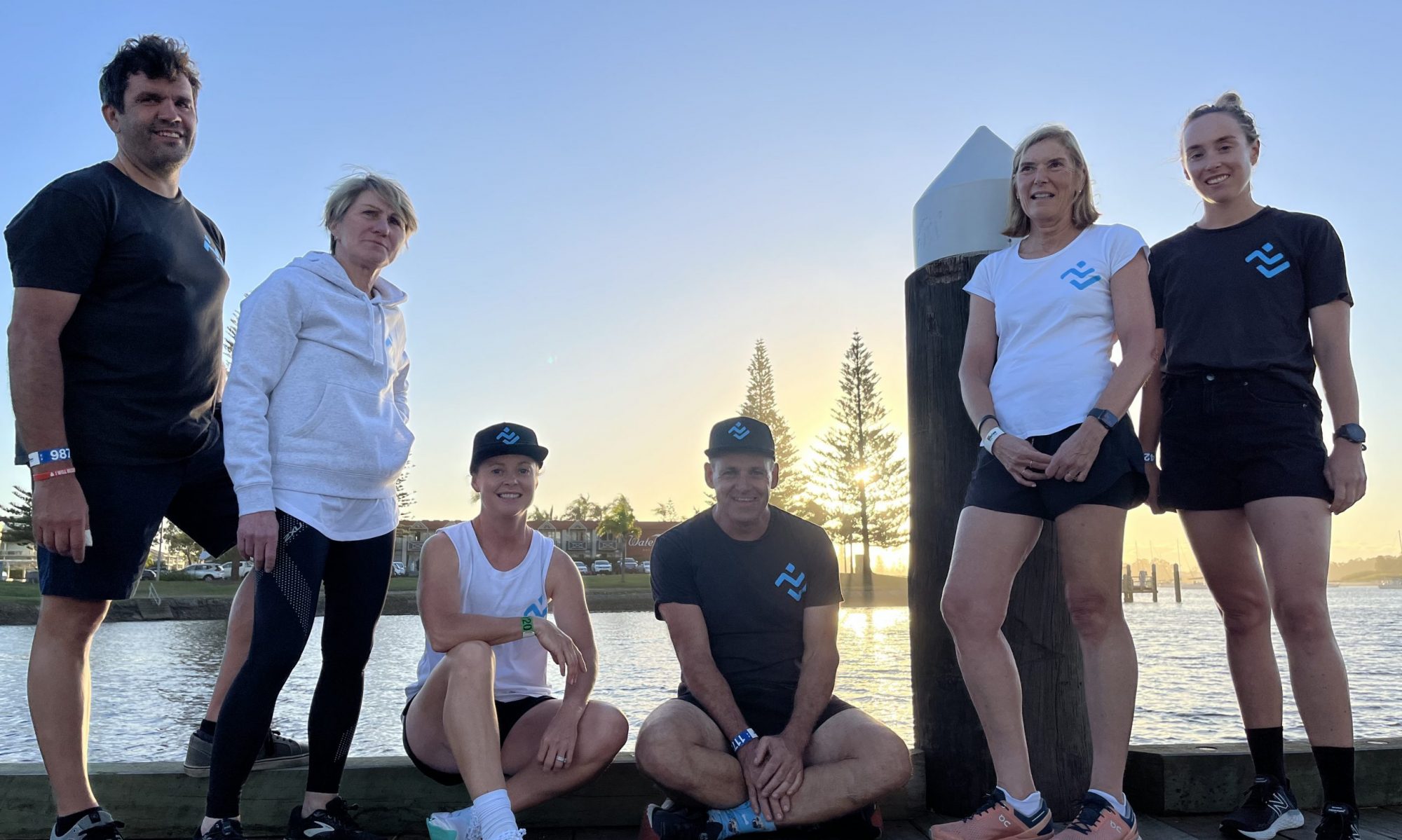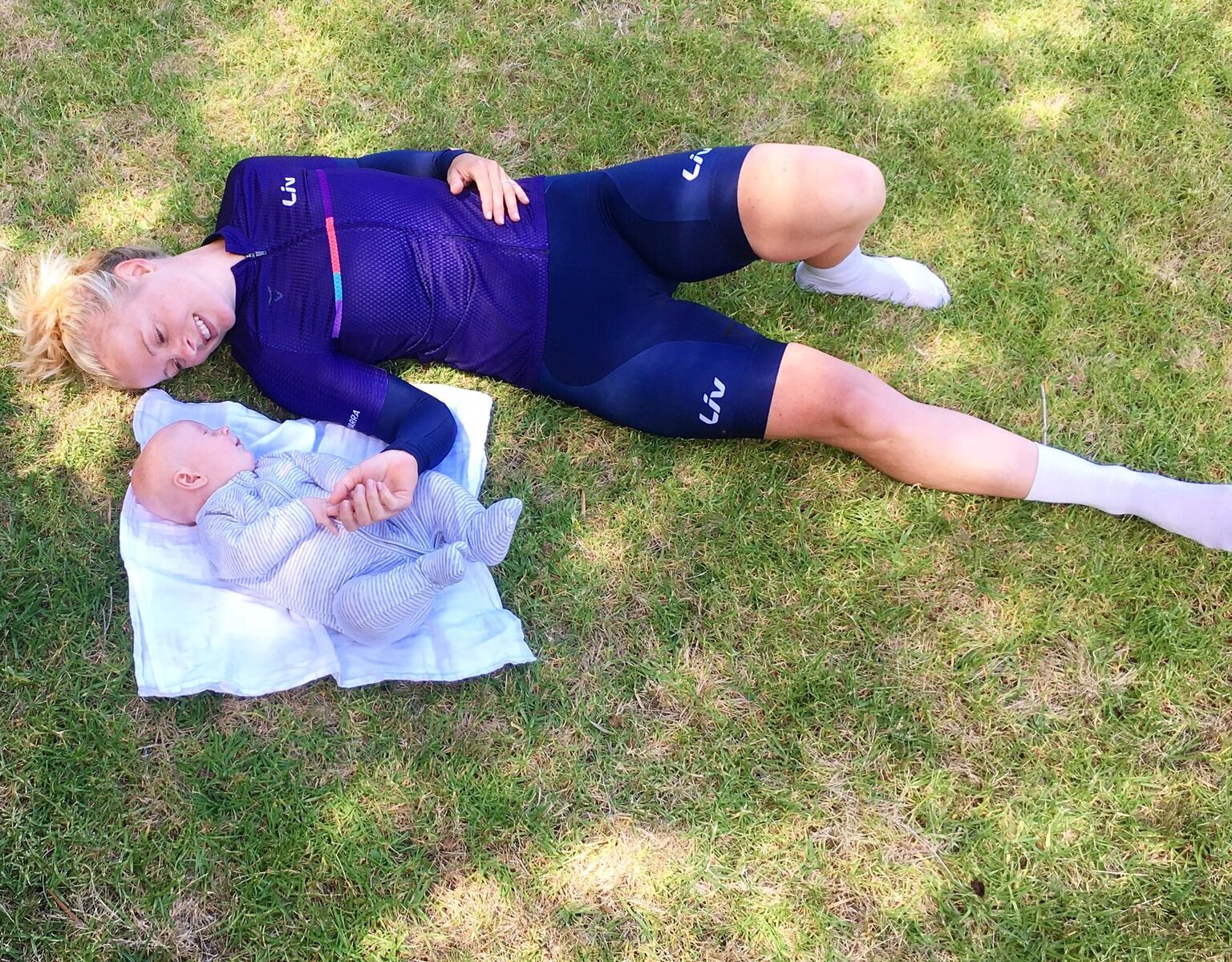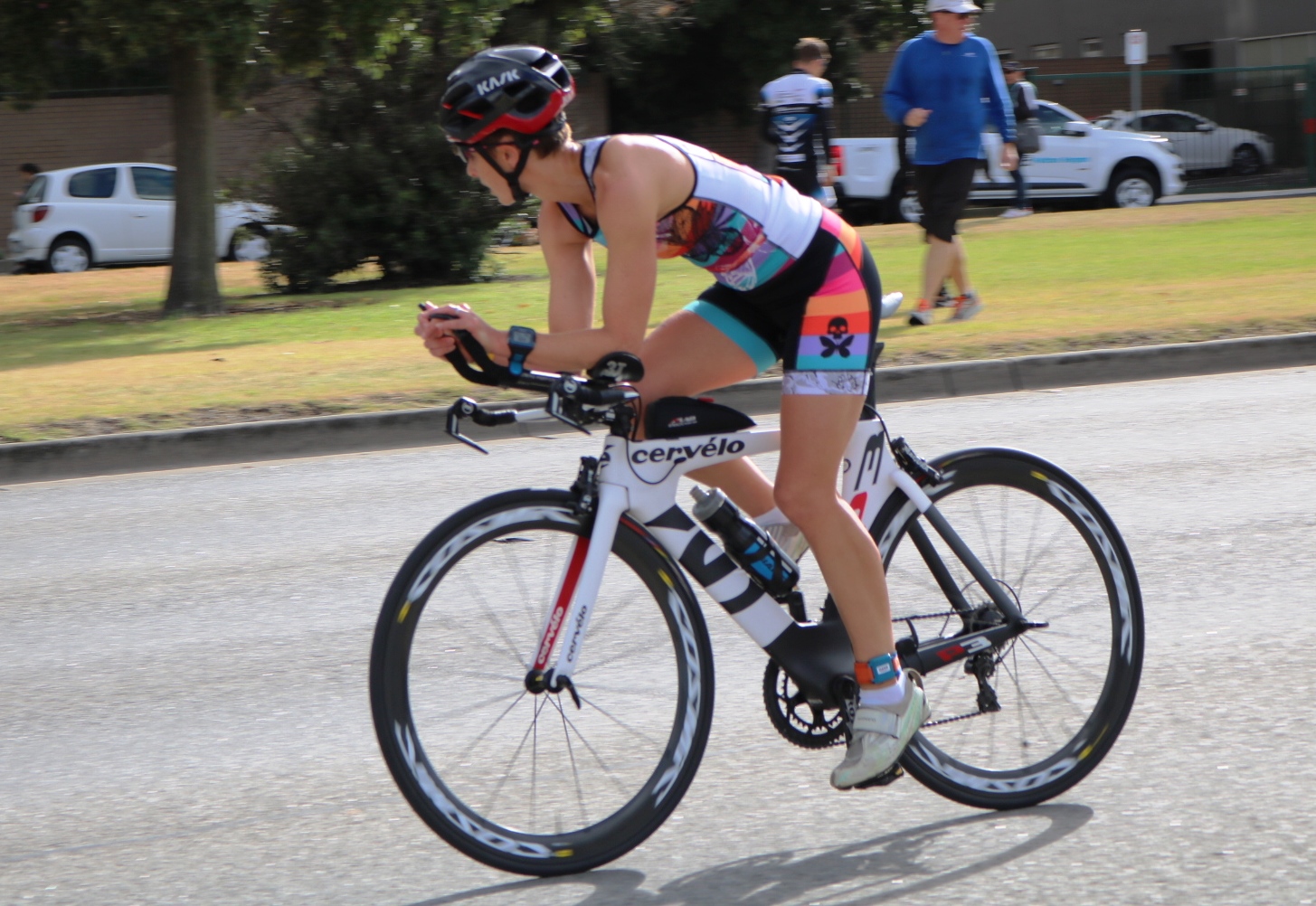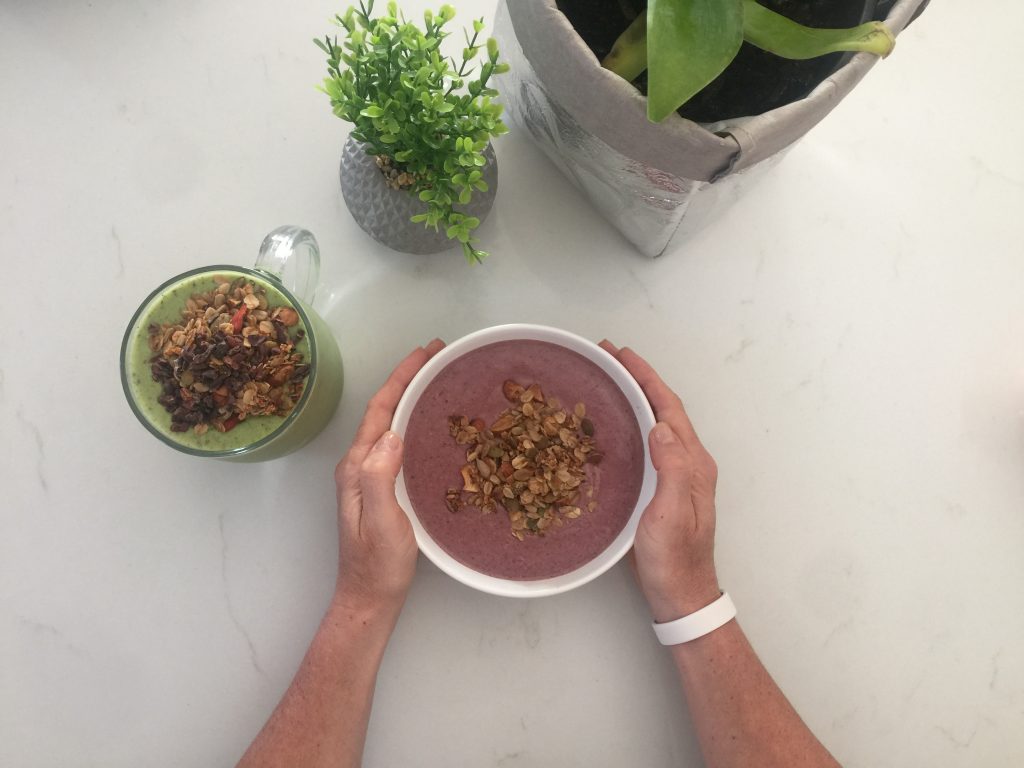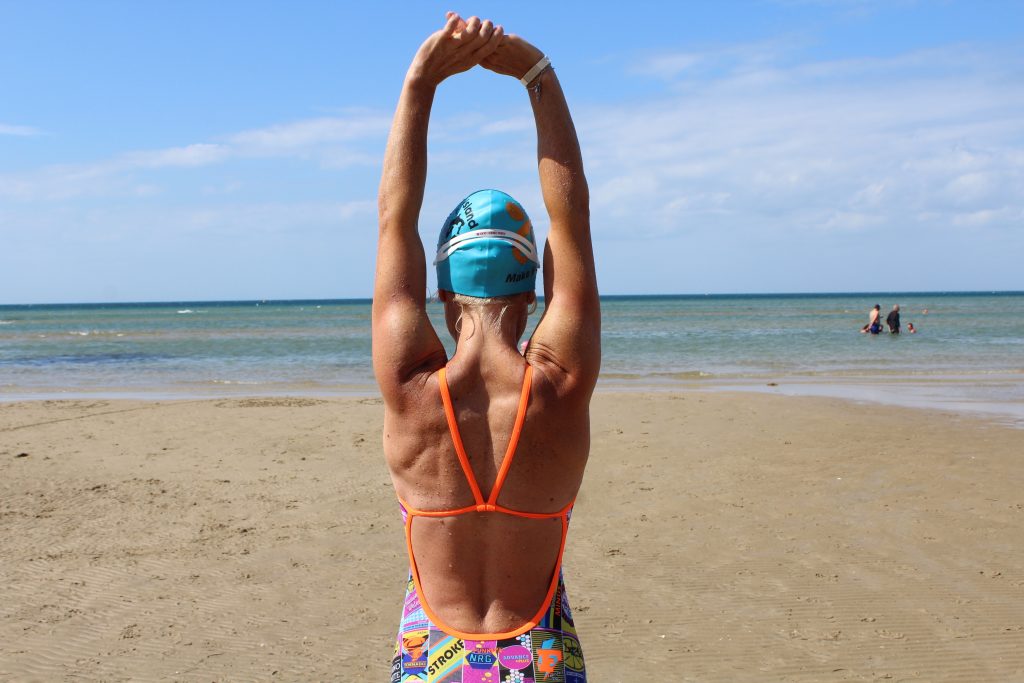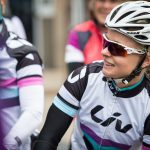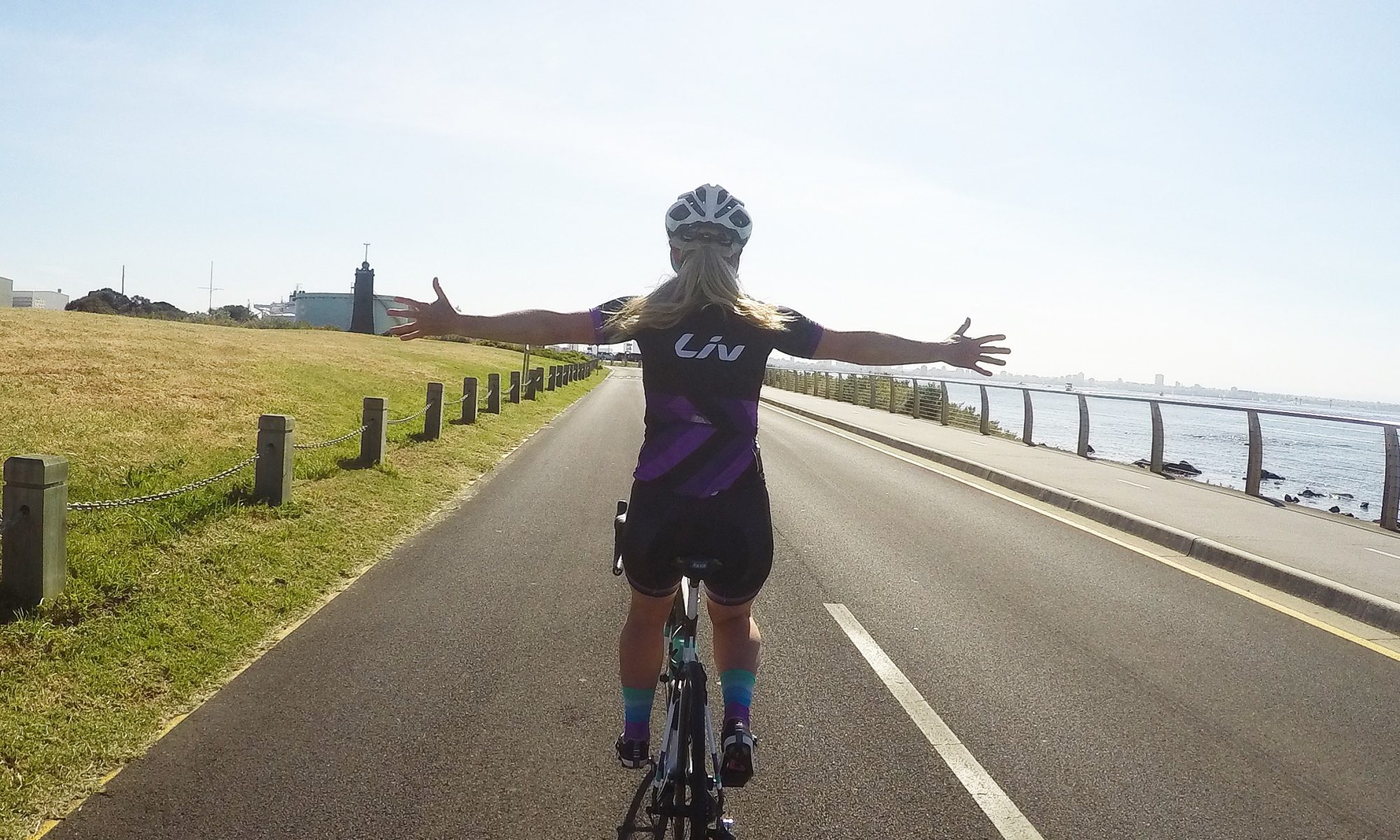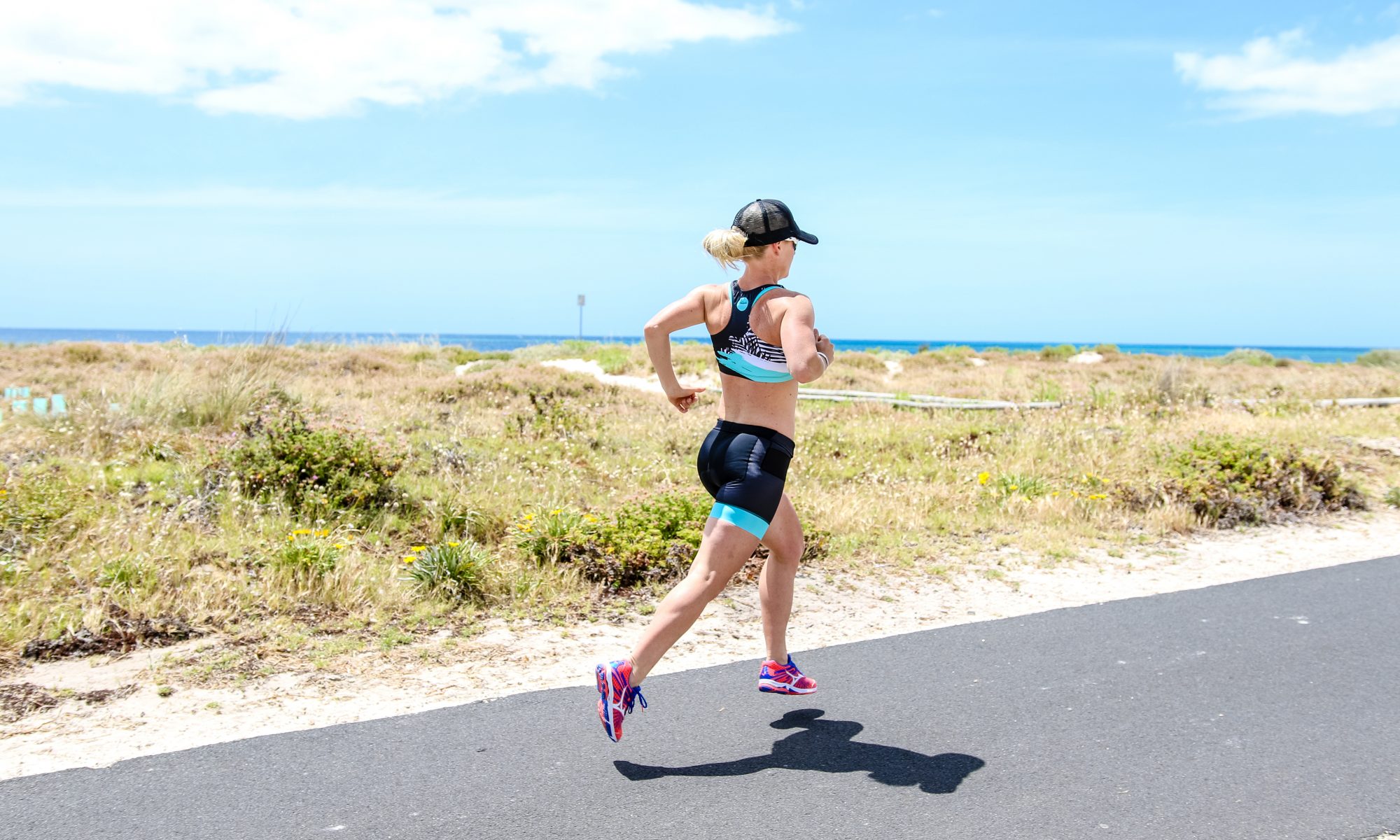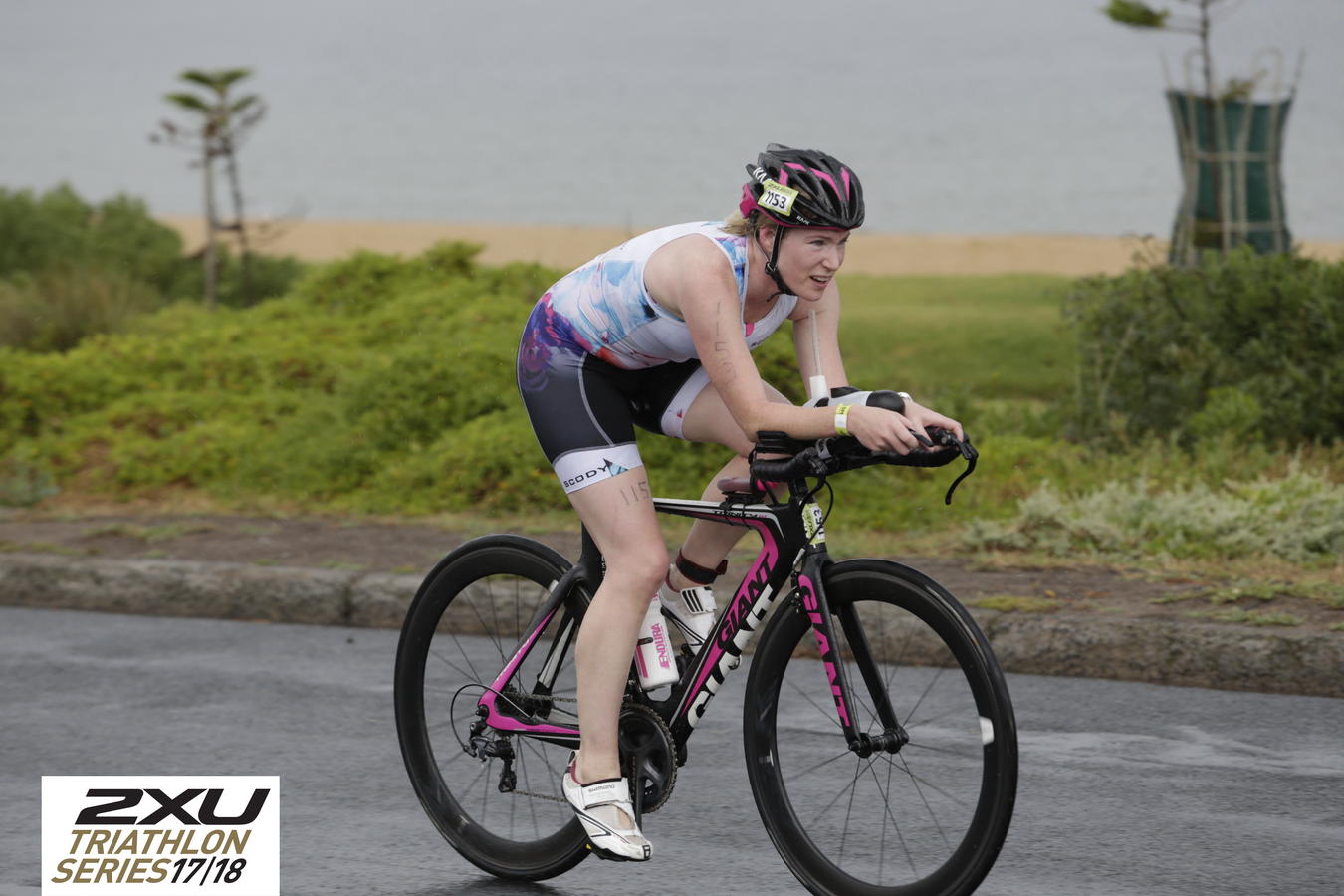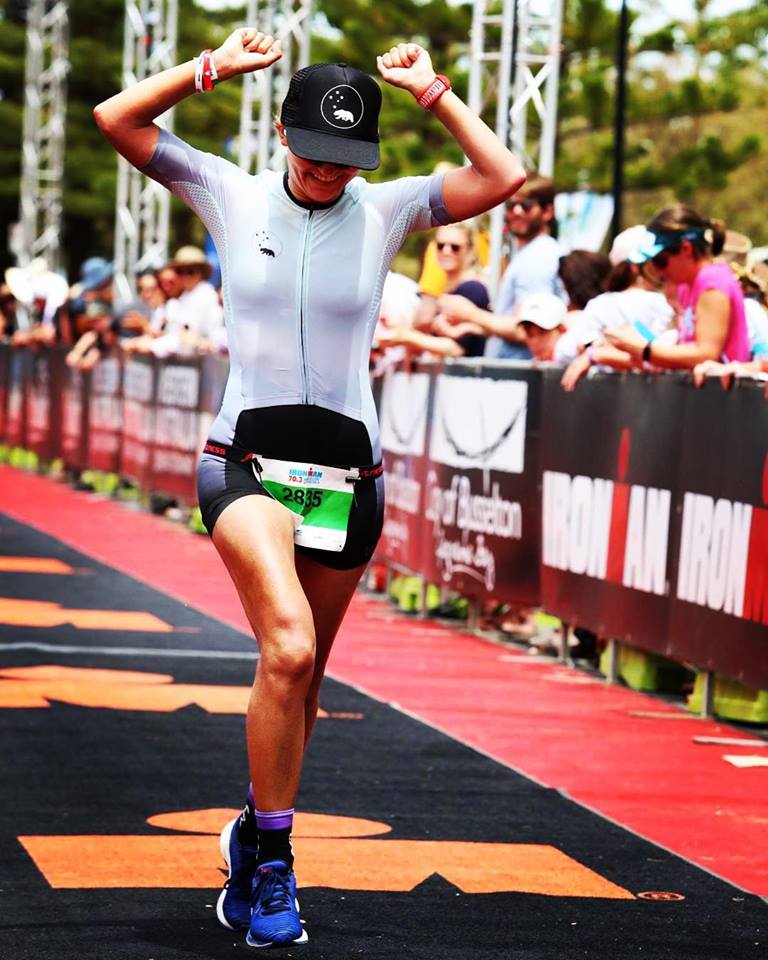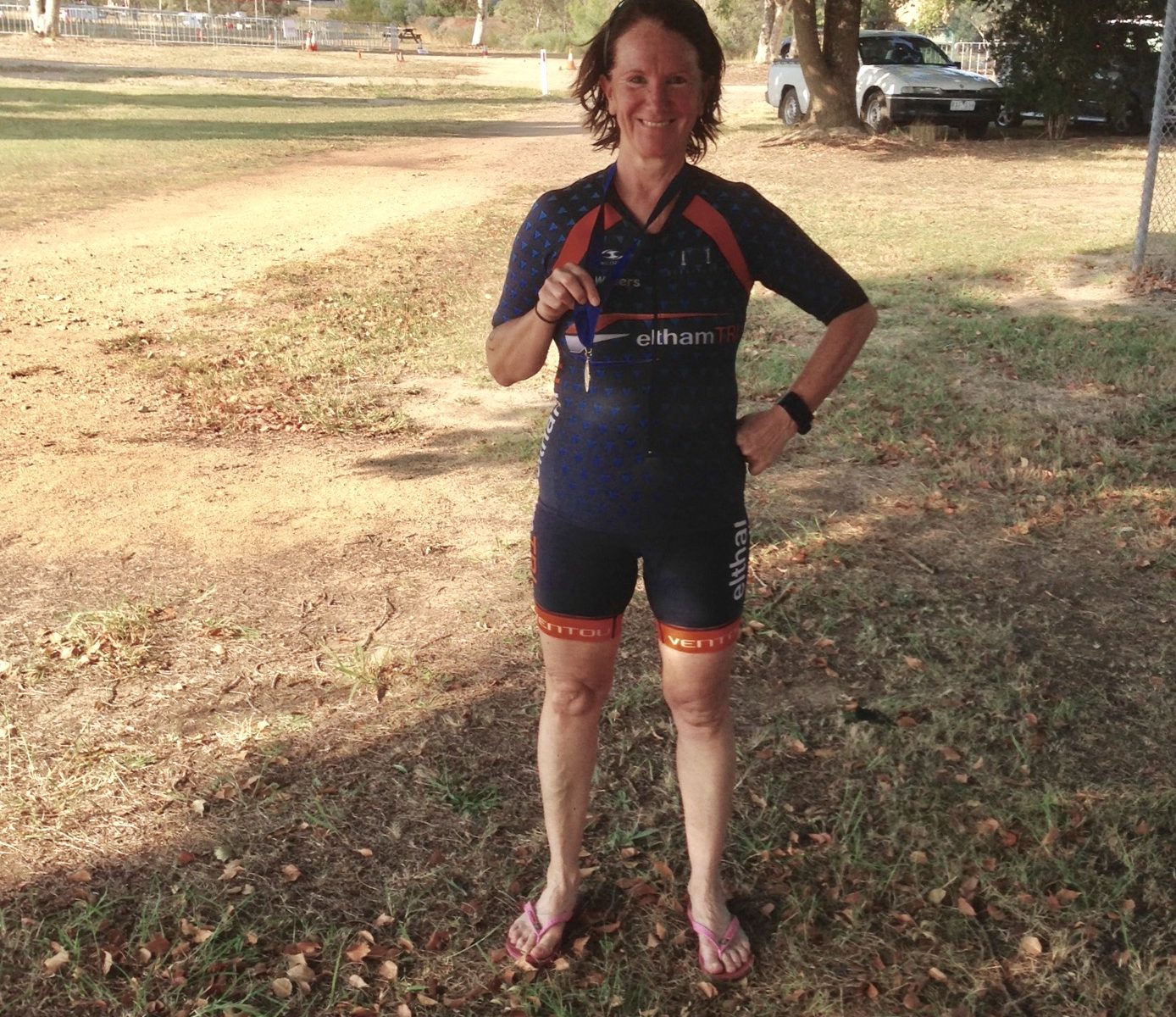“How do you find the time to train?”
“How do you fit everything in?”
“Why do you want to train so much?”
“Don’t you just want to spend that time with your little one?”
I actually wondered this myself before becoming a mum. I wondered whether I’d be able to ‘do it all’. To be able to find time to look after a little one, to work, to take care of myself, our household and on top of that, to train. I questioned whether I actually should, when the ‘right’ time to come back to training was and how much training was going to be enough.
It can be tough. At times I can be torn between my choices.
To head out on the bike, or spend that extra time with my family.
To get the sleep while I can, or squeeze a training session in.
To relax and enjoy, or to get out and work out.
There’s been times that I’ve let my little one cry longer than I’d like because I wanted to finish an interval on the trainer.
I’ve woken him up in the early hours of the morning to feed him, hoping (praying) he’d then go back to sleep so I could sneak out quietly and get a session in before he wakes for the day.
I’ve gently lifted his sleeping body out of his warm cosy bed and dragged him down to races so I could watch and support athletes.
I’ve left him with family, not because I wanted a break, but because I wanted to train.
I’ve kept him up past his bed time so I can finish a session, despite knowing he’ll be over tired and grumpy because of it.
I’ve allowed him to nap later than I ‘should’ simply so I could get some extra work done.
Does any of this mean I am doing less, or more, than what I ‘should’ be? Am I doing enough? Being enough? Giving enough?
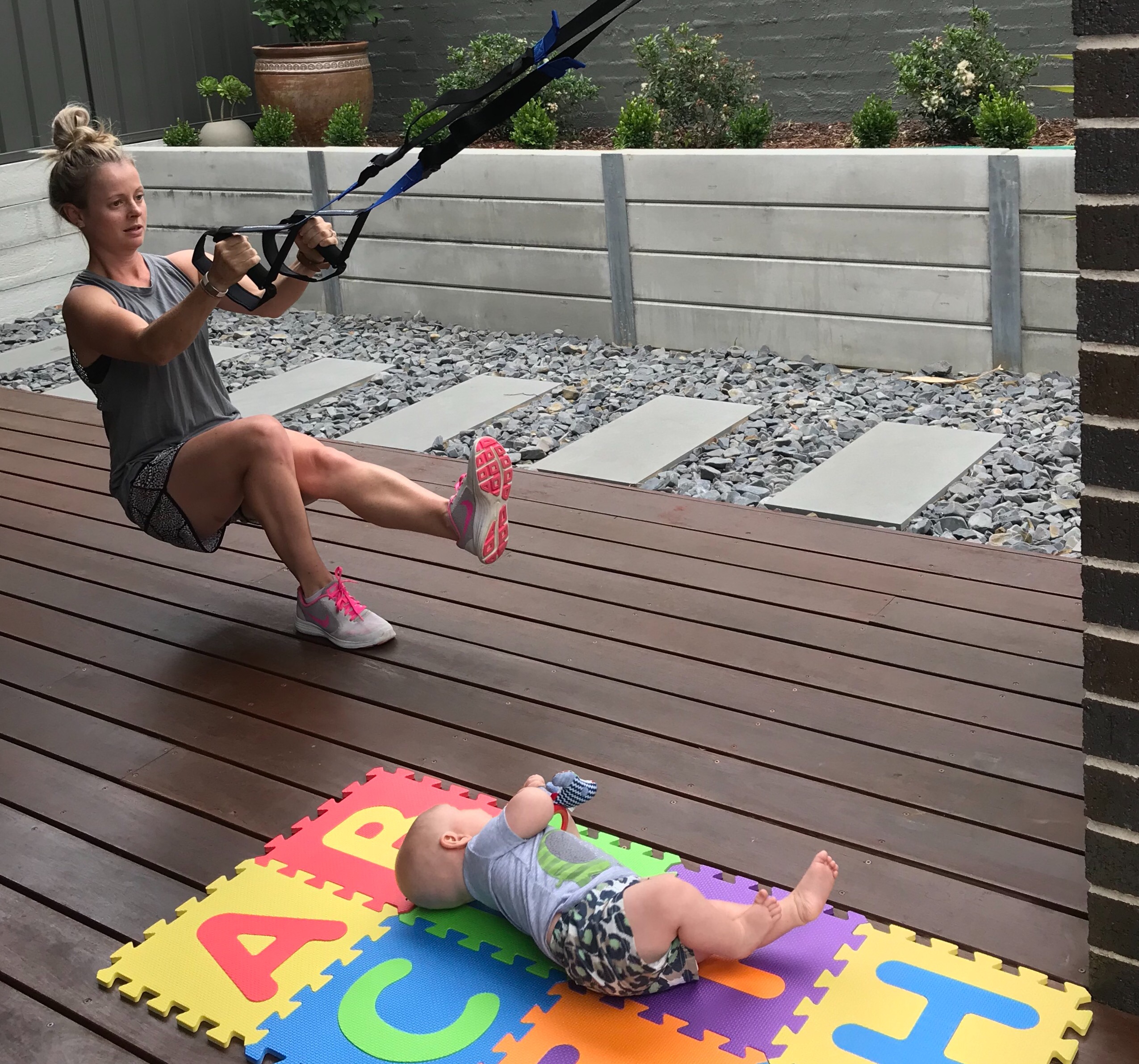
Everyone’s journey in life is different, especially as mothers. We are all trying to find our own way, in our own way. Learning as we go, discovering, understanding. Trying to figure out what works for our own families and ourselves. What we can fit into our days and our weeks. Spreading our time and our love between those around us – but not forgetting about ourselves.
As mums, all we want is to do what’s ‘right’ for our children. But honestly, there is no right way. We’re all just doing the best that we can, with the time and the support that we have. What works for one person, or one family, doesn’t mean it’s right for the next. Just like training itself. What works for one, doesn’t mean it will work for everyone. Sometimes it’s trial and error. Sometimes it’s strict routine, other times its go with the flow. Sometimes it’s more, sometimes it’s less. It doesn’t make one right or wrong. They are just different.
But what I do know is our little man is growing up in a happy, healthy family. We are 100% there for him and would do anything for him, yet at the same time, our health and our happiness and our goals are also a priority to US. As he grows older he will become to understand what exercise and training is, that it makes us happy and keeps us healthy. He’ll be curious, and I have no doubt he will want to join in. So we’ll find a way to include him and encourage him. Looking after ourselves, training, exercising, eating healthy is what he’ll come to know. And that brings me both joy and excitement. For as much as I might ‘leave’ him to go out and train, I believe he will learn so much more because of it.
As mothers, we are hard enough on ourselves. So before you question whether we should be doing as much as we are, think about the long term benefits for not only us as mothers, but also our little ones in tow.
So don’t judge us for the choices we make, as you may not understand our family.
Don’t question if we should be training less, or training more, or not at all. For you may not understand our reasons.
Don’t doubt us for doing things different to you, or to others, as we are not you and we are not them.
Don’t criticise us for our decisions, as you may not understand the struggles, the challenges or the triumphs it takes for us to get to them.
Instead, celebrate us. Encourage us. Support us. Share the journey with us. Because you may just well be inspired by us.
We give so much of ourselves in all aspects of our lives. For 9 months we selflessly share our bodies with another tiny human being.
We go through body changes (and continue to do so), that only a mother can understand.
We nourish, nurture and soothe when no one else can. We get up early and wake in the middle of the night when all we want is sleep. We teach, we educate, we laugh, we cry. We scream in frustration, we lie down with exhaustion. We’re on call 24/7 yet don’t ask for anything in return.
So with everything that we give, everything that we do, to take an hour or two out of the day to ourselves – to train, to rest, to do whatever we choose, is not something that should be questioned. Because if we are our healthiest and happiest, our little families will be too. And if that means training, then training it is. 🙂
Being a mum, while having the ability to work, train and remain healthy is a choice. And I love that so many mums are making that choice too. For their own health, their own happiness, their own reasons. So I celebrate each and every mum out there making time for themselves.
So if you are a mum, a soon to be mum, hoping to be a mum, or a mum who has lost their sweet angel – always remember that you are enough. Your time away from your partner, husband, loved one, and little one/s isn’t lost time. It’s your time. For your own growth. For your own health, your own happiness and for your own reasons. There isn’t a right amount of time, the right time, or wrong time. It’s your time and you can use it how you choose. For you. And for your family.
Happy, Healthy Mothers Day to every special mum out there doing their thing. Xox
